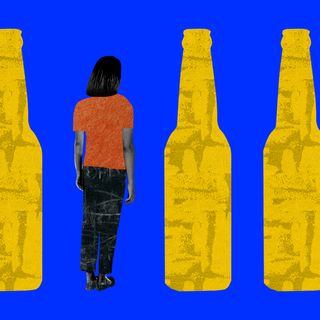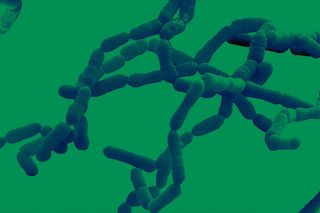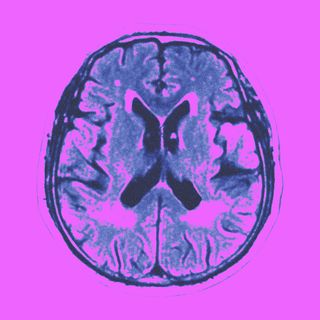
Research Finds Gut Bacteria Linked to Depressive Symptoms Across Ethnicities
Identifying microbes associated with synthesising chemicals associated with depression can help understand and treat it.

Two studies, both published in Nature Communications, examine the relationship between the gut microbiome and symptoms of depression. Carried out in the Netherlands and published on Tuesday, the research explores alternative methods by which depression can be assessed and treated.
Depression is among the most common mental health conditions affecting people today. According to the World Health Organization (WHO), almost 280 million people worldwide suffer from depression. Despite its common occurrence, however, the condition of depression remains elusive to both diagnosis and treatment. As one of the two new studies notes, existing “treatment options are sub-optimal with most antidepressants performing only marginally better than placebo, with additional costs of having side effects ranging from minor cognitive complaints to even suicide.” Hence, the medical community is on the lookout for arriving at other methods for both identifying and treating depression.
One such method could be the human gut microbiome. In the last few years, there has been considerable research on how human intestinal gut can influence brain activity and behavior, through pathways collectively known as the gut-brain axis. Moreover, some studies on other mammals have suggested that the composition of the gut microbiome may have an effect on their mental health. There are also a few studies that have examined the relationship between human probiotic consumption and mood swings. However, barring a few small-scale studies, no major research has so far explored the relationship between the human gut microbiome and depression.
Studying the relationship between the gut microbiome and ethnicities is particularly significant, as people from different ethnicities may have differential access to healthcare, resulting in potentially diverse health profiles and health inequality.
Earlier research explored how even in the same geographical locations, the gut microbiome of people from different ethnicities exhibits widespread variation. A 2021 study on people from different ethnicities living in Malaysia found that “the influence of ethnicity on the gut microbiota was detected from a community living in the same geographical region.” Due to different lifestyles and dietary habits, there were subtle but significant variations in people’s gut microbiome depending on their ethnicity. A similar study on US residents also showcased similar results, highlighting differences in people’s
The present studies analyzed data from pre-existing large-scale cohorts involved in biomedical studies. While one analyzed the microbiome composition in humans and their connections with depressive symptoms, the other focused on characterizing the composition of the microbiome and then analyzing its relationship with depressive symptoms across people of six different ethnicities. intestinal guts depending on their ethnicity.
Related on The Swaddle:
The former study analyzed fecal microbiome diversity of 1,054 participants from the Rotterdam cohort — a long-term population-based medical study that was first contituted in 1990 — and then cross-analyzed and validated its findings with an additional 1,539 participants from the Healthy Life in an Urban Setting (HELIUS) cohort, that aims to investigate the “biological, psychological and social causes of the unequal burden of disease across ethnic groups.” The latter study analyzed data from 3211 participants from the HELIUS cohort, split in six ethnicities: Dutch, South-Asian Surinamese, African Surinamese, Ghanaian, Turkish, and Moroccan.
Researchers studying the Rotterdam cohort identified associative links between thirteen different kinds of microbes and depressive symptoms. These thirteen genera of microbes are responsible for the synthesis of chemicals such as glutamate, butyrate, gamma amino butyric acid, and serotonin — all known chemical messengers associated with depression. Further, their statistical analysis suggested that there exist causal links between one of those thirteen genera, Eggerthella, and major depressive symptoms.
Researchers studying the HELIUS cohort also identified associative links between depressive symptoms and gut microbial composition. They observed that this association was largely indifferent to the ethnic identity of the individual, meaning that the gut microbial composition affected patients irrespective of their ethnicity. This indicates that even when human guts may comprise of different microbial compositions, the taxa associated with depression and depressive symptoms is common in all of them. In other words, people from all ethnicities face the risk of depression from a biological angle. This further amplifies the role privilege and access to healthcare play in determining different communities’ chances of survival from the same set of disorders.
The researchers further also observed the prevalence of several other established risk factors of depression — such as alcohol consumption and smoking — among the members of their sample. They also identified fifteen genera of microbes that displayed associative links with depressive symptoms.
A limitation of both the studies is that they don’t establish causal links between the gut and the symptoms of depression, only associative ones. However, they provide a good groundwork for future medical researchers to examine these causal relationships, if any. For now, they’ve have established the idea of examining the use of gut composition as a possible tool to diagnose depression. As one study notes, the achievement of these studies is “indicating that depressed individuals have a microbiota composition that is distinguishable from those without depression.” This could go a long way in devising alternative methods for detecting depression.
Amlan Sarkar is a staff writer at TheSwaddle. He writes about the intersection between pop culture and politics. You can reach him on Instagram @amlansarkr.
Related


Listening to Podcasts Might Help People Fulfill Their Social Needs, Study Finds
